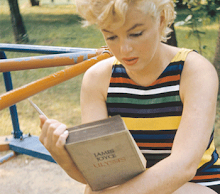Nine Horses by Billy Collins: self-help for writers
 It isn’t fashionable, or indeed, especially wise, to admit to loving Billy Collins amongst poetry aficionados. My borrowed library copy of Nine Horses bears the recommendation ‘Billy Collins is one of my favourite poets in the world’ from Carol Ann Duffy, and we all know what the poetry elite think of her. They sniff at Collins’ accessibility, his open references and narrative focus, his eternally marketable, populist brand of ‘comforting melancholy’. Poetry is a hallowed ground, where only the smartest, most beautiful people dare enter, and yet Collins has been handing out free trials and day passes to anybody who cares to take one.
It isn’t fashionable, or indeed, especially wise, to admit to loving Billy Collins amongst poetry aficionados. My borrowed library copy of Nine Horses bears the recommendation ‘Billy Collins is one of my favourite poets in the world’ from Carol Ann Duffy, and we all know what the poetry elite think of her. They sniff at Collins’ accessibility, his open references and narrative focus, his eternally marketable, populist brand of ‘comforting melancholy’. Poetry is a hallowed ground, where only the smartest, most beautiful people dare enter, and yet Collins has been handing out free trials and day passes to anybody who cares to take one.I like Nine Horses, very much. It has touches of the sentimental, yes, and I guess it can be a bit mawkish, but its immediacy has continued to grab me in those snatched moments, brushing my teeth or waiting for the computer to reboot, over the last two months. Focusing on the conflict inherit in capturing the ephemeral, it is a delicately funny and painful tour through the anxieties of all writers.
In Nine Horses, Collins envisages people carrying out the most mundane daily tasks, surrounded by invisible speed lines, whisking them, silently, to their inevitable death. He entertains paranoid fantasies of losing everything, all because of one careless omission. He basks in the buzz of waking up to a fresh day and a blank piece of paper, and then agonises over the gap between the cold, concrete, nuts and bolts of making art, against what it comes to represent. Speaking of Whistler’s portrait of his mother, Arrangement in Gray and Black, all Collins can do is berate the artist, as he;
Could have broken
By being demoted from mother
To mere arrangement, a composition without color...
...Like Botticelli calling The Birth of Venus
‘Composition on Blue, Ocher, Green, and Pink,’
or the other way around,
Like Rothko labeling one of his sandwiches of color
‘Fishing Boats Leaving
I always fear that we all sell our integrity when we tell our stories, prostituting our romantic failures or serious fears in exchange for a laugh or a bit of sympathy.
did anyone sense something
when another Eric Dolphy lifetime
was added to the span of his life,
full Dolphy step forward in time,
flipped over the Eric Dolphy yardsick once again?
I imagined the atmosphere would be clear,
shot with pristine light,
not this sulphurous haze,
the air ionized as before a thunderstorm.
Many have pictured a river here,
but no one mentioned all the boats,
their benches crowded with naked passengers,
each bent over a writing tablet.
I knewI would not always be a child
with a model train and a model tunnel,
and I knew I would not live forever,
jumping all day through the hoop of myself.
I had heard about the journey to the other side
and the clink of the final coin
in the leather purse of the man holding the oar,
but how could anyone have guessed
that as soon as we arrived
we would be asked to describe this place
and to include as much detail as possible—
not just the water, he insists,
rather the oily, fathomless, rat-happy water,
not simply the shackles, but the rusty,
iron, ankle-shredding shackles—
and that our next assignment would be
to jot down, off the tops of our heads,
our thoughts and feelings about being dead,
not really an assignment,
the man rotating the oar keeps telling us—
think of it more as an exercise, he groans,
think of writing as a process,
a never-ending, infernal process,
and now the boats have become jammed together,
bow against stern, stern locked to bow,
and not a thing is moving, only our diligent pens.
I was a single monkey
Trying to type the opening lines of my Hamlet,
Than ironing pieces of paper in the platen
Then wrinkling them into balls
To flick into the wicker basket
Adding to the great secretarial din,
That chorus of clacking and bells,
Thousands of desks receding into the past.


0 Comments:
Post a Comment
Subscribe to Post Comments [Atom]
<< Home